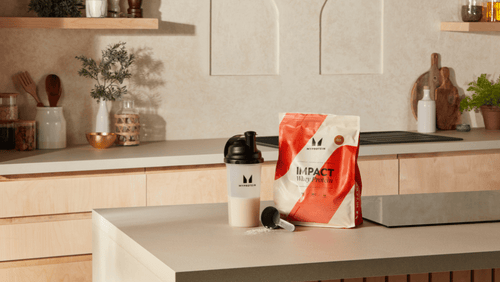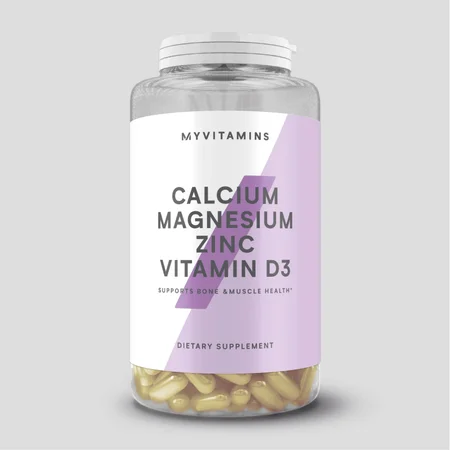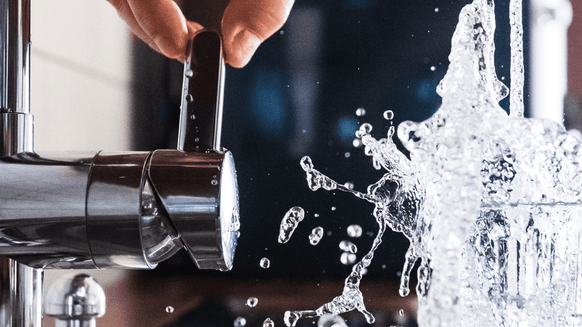
Sleep is crucial for health, mental well-being, and even athletic performance, yet it's often neglected in our fast-paced lives. Whether you're an athlete aiming for peak performance or someone seeking to enhance your day-to-day quality of life, here’s what you can do to get on the path to better sleep.
- The Basics of Sleep Cycles and Stages
- The Link Between Sleep and Overall Health
- Why Athletes Need Quality Rest
- Barriers to Better Sleep
- Creating a Sleep-Friendly Environment
- The Role of a Consistent Sleep Schedule
- Pre-Sleep Routines
- The Impact of Technology on Sleep Quality
- Relaxation Techniques for Better Sleep
- The Importance of Physical Activity for Sleep Quality
- Nutrition and its Effect on Sleep
- How Stress and Anxiety Affect Sleep
- Supplements and Aids for Better Sleep
- The Benefits of Napping for Athletes
- Monitoring and Improving Your Sleep Patterns
- The Connection Between Sleep and Injury Recovery
- How Much Sleep Do I Need?

Understanding Sleep: The Basics of Sleep Cycles and Stages
Sleep is composed of several stages that cycle throughout the night.1 There are two main types: non-rapid eye movement (NREM) and rapid eye movement (REM) sleep. NREM sleep can be categorized into three stages:
Stage 1
Light sleep where you drift in and out of sleep and can be easily awakened. This stage is brief, lasting only a few minutes, and involves the transition from wakefulness to sleep. Muscle activity slows down, and you may experience sudden muscle twitches, often referred to as “hypnic jerks”. This stage typically lasts between one and five minutes, comprising 5% of total sleep time.
Stage 2
Onset of sleep at which point body temperature drops and heart rate slows. During this stage, which constitutes about 45% of the sleep cycle, the body prepares for deep sleep. Eye movement stops, brain waves become slower with occasional bursts of rapid activity known as sleep spindles, and heart rate and body temperature decrease.
Stage 3
Deep sleep crucial for physical recovery, immune function, and energy conservation. This stage is characterized by delta waves or slow-wave sleep (SWS). It's also the most restorative stage, when tissue repair, muscle growth, and overall physical recovery occur.
REM sleep, when dreaming occurs, is believed to be key for brain function and emotional health.2
During this stage, brain activity increases, approaching similar levels to when awake. The body undergoes temporary paralysis to prevent acting out dreams, and rapid eye movement occurs behind closed eyelids.
A typical sleep cycle lasts about 90 minutes, and we go through several per night, with REM stages lengthening and deep sleep stages shortening as the night progresses.1

The Link Between Sleep and Overall Health
Quality sleep is fundamental for health and well-being, supporting various bodily functions including immune health, metabolism, and cognition.4 Lack of sleep is linked to numerous physical and mental health issues.5
Sleep and Sports Performance: Why Athletes Need Quality Rest
For athletes, sleep is a vital component of performance and recovery. During deep sleep, growth hormone is released, which is crucial for muscle repair.6
Likewise, adequate sleep improves reaction times, accuracy, and endurance, while sleep deprivation impairs cognitive function and physical performance. It also reduces strength, which can lead to increased injury risk and slower recovery times.7 As a result, athletes who prioritize sleep as part of their routine are more likely to perform at their best.

Barriers to Better Sleep
Identifying and addressing these barriers is crucial for improving sleep quality and achieving restful, restorative sleep.
Stress and anxiety
These can lead to racing thoughts and difficulty falling asleep. Chronic stress activates the body's fight-or-flight response, increasing cortisol levels and making it harder to relax and sleep.8
Poor sleep hygiene
Light, noise, and uncomfortable bedding can disrupt sleep. An unsuitable sleep environment can prevent you from falling asleep and staying asleep.
Irregular sleep schedule
Going to bed and waking up at different times each day can confuse your internal clock, leading to difficulty falling asleep and waking up feeling groggy.
Lifestyle
Caffeine, alcohol, and heavy meals close to bedtime can interfere with sleep. Stimulants like caffeine and nicotine can keep you awake, while alcohol might disrupt sleep cycles and lead to broken sleep.9,10
Medical conditions
Sleep disorders such as insomnia, sleep apnoea, and restless leg syndrome can significantly impact sleep quality.11 If these issues affect you, it’s essential to address these conditions with the help of a healthcare professional.

Creating a Sleep-Friendly Environment
Your bedroom should be a sanctuary for sleep. Optimizing your sleep environment allows you to create a space that supports restful, uninterrupted sleep.
Darkness
Use blackout curtains or an eye mask to keep the room dark. Darkness signals the body to produce melatonin, the hormone responsible for sleep.12
Quiet
Consider earplugs or a white noise machine to block out disruptive sounds. A quiet environment promotes uninterrupted sleep.
Cool temperature
Keep the room comfortably cool, around 59-66F. A cooler temperature supports the body's natural drop in core temperature, facilitating sleep onset and maintenance.13
Comfortable bedding
Invest in a quality mattress and pillows that support your preferred sleeping position. Comfortable bedding enhances sleep quality by reducing discomfort and promoting proper spinal alignment.14
Minimal clutter
A clutter-free environment reduces stress and promotes relaxation, creating a more suitable space for sleep.15

Top 10 Sleep Methods Tried & Tested
From sleeping in the buff to the most talked about supplements....
The Role of a Consistent Sleep Schedule
Maintaining a consistent sleep schedule helps regulate the circadian rhythm, your body's internal clock. Try to go to bed and wake up at the same time every day, even on weekends. This consistency reinforces your sleep-wake cycle and can improve the quality of your sleep, improve daytime alertness, and support overall health over time.16
Exposure to natural light should also be included as part of your morning routine to help regulate circadian rhythms and promote wakefulness during the day. Need to change your sleep schedule? Make gradual adjustments of 15-30 minutes earlier or later each day to avoid disrupting your body clock.
Pre-Sleep Routines: Setting the Stage for Restful Sleep
A calming pre-sleep routine can signal to your body that it's time to wind down. Consider incorporating these activities into your evening routine for a consistent, calming transition to sleep.
Reading
Reading a book before bed can help distract your mind from stressful things and promote relaxation.
Bathing
A warm bath can relax your muscles and mind. The drop in body temperature after a bath can also signal to your body that it's time to sleep.
Meditation or deep breathing
These practices can reduce stress and prepare you for sleep. Techniques such as mindfulness, meditation, and progressive muscle relaxation can calm your mind and body.
Limiting screen time
Avoid electronic devices at least an hour before bed to prevent blue light from disrupting your sleep. Blue light inhibits melatonin production, making it harder to fall asleep.17
Journaling
Writing down thoughts and worries before bed can help clear your mind and reduce anxiety, making it easier to relax and fall asleep.

The Impact of Technology on Sleep Quality
Electronic devices emit blue light, which can interfere with the production of melatonin, the hormone that regulates sleep.4 Taking the following steps can help to minimize the impact on sleep quality and enhance your overall rest.
- Use night mode: Activate blue light filters on your devices in the evening. Most smartphones, tablets, and computers have settings that reduce or block blue light.
- Set boundaries: Make your bedroom a screen-free zone. Avoid using electronic devices in bed to associate your bedroom with sleep rather than stimulation.
- Wind down: Turn off devices at least an hour before bed to help your mind unwind. Instead, engage in relaxing activities like reading, meditating, or listening to soothing music.
- Monitor screen time: Be mindful of how much time you spend on screens throughout the day and take regular breaks to reduce eye strain and mental fatigue.

Relaxation Techniques for Better Sleep
Incorporating relaxation techniques into your daily routine can promote better sleep.
Progressive muscle relaxation
Tense and then relax each muscle group, starting from your toes and moving upwards. This technique helps release physical tension and promotes relaxation.
Visualization
Imagine a peaceful scene or journey to calm your mind. Visualization can distract your mind from stressors and create a sense of calm and serenity.18
Yoga or stretching
Gentle movements can relieve tension and prepare your body for sleep. Practices such as restorative yoga and gentle stretching can help relax your muscles and mind.
Deep breathing
Practice deep breathing exercises, such as the 4-7-8 technique (inhale for four seconds, hold for seven, exhale for eight).19 Deep breathing activates the parasympathetic nervous system, promoting relaxation and reducing stress.
Mindfulness meditation
Focus on the present moment without judgment. Mindfulness meditation can reduce stress, enhance relaxation, and improve sleep quality.20

Master Meditation: Advice from A Mindfulness Coach
It's time to take 5 and try this....
The Importance of Physical Activity for Sleep Quality
Regular physical activity can significantly improve sleep quality and reduce stress levels.21 Activities such as walking, running, swimming, and cycling can improve sleep quality and duration.
Aerobic exercise promotes cardiovascular health and can enhance mood and reduce stress, while resistance training, such as weightlifting and bodyweight exercises, can also contribute to better sleep.22 Aim for at least 30 minutes of moderate exercise most days, but avoid vigorous workouts close to bedtime as they may interfere with your ability to fall asleep.
Nutrition and Its Effect on Sleep
Your diet could be influencing your sleep patterns. Try out these tips for better sleep:
Avoid caffeine and nicotine
Both are stimulants that can disrupt sleep. Limit caffeine intake, especially in the afternoon and evening, and avoid nicotine close to bedtime.
Limit alcohol
While it might help you fall asleep, alcohol can interfere with sleep cycles. Alcohol can disrupt REM sleep, leading to broken and less restorative sleep.23
Eat light in the evening
Heavy meals can cause discomfort and disrupt sleep.24 Instead, try to opt for a light snack if you're hungry before bed. Foods rich in complex carbohydrates, protein, and tryptophan (found in meat, dairy, and nuts) can also promote better sleep.25
Stay hydrated
Make sure to stay hydrated throughout the day but avoid drinking large amounts of fluids before bed to reduce the need for nighttime bathroom visits.
Maintain a balanced diet
A nutrient-dense diet rich in fruits, vegetables, lean proteins, and whole grains helps to support overall health and can improve sleep quality.26

Eating Before Bed? | What Foods Are Good Or Bad?
Don't throw out your midnight snack just yet....
How Stress and Anxiety Affect Sleep
Stress and anxiety are major sleep disruptors that can lead to insomnia and broken sleep.27 Managing stress through relaxation techniques, regular exercise, and mindfulness can help improve sleep quality by reducing anxiety and quieting the mind. If you find that stress and anxiety are significantly impacting your sleep, consider seeking support from your GP who can recommend other therapeutic approaches to help manage anxiety and restore sleep quality.
Supplements and Aids for Better Sleep
Supplements can support better sleep, especially if your diet lacks specific nutrients. The following supplements have been shown to aid in achieving a more restful sleep:
Zinc and magnesium
Taken individually or as a combined supplement, these micronutrients can help relax muscles and improve sleep quality.28,29
Herbal supplements
Chamomile, valerian root, and lavender are known for their calming effects. These herbal supplements can promote relaxation and improve sleep.30
Ashwagandha
The popular root extract has been shown to help people fall asleep faster, improve sleep quality, and increase sleep duration.31
Reishi gummies
Also known as lingzhi, this mushroom has rapidly grown in popularity. Pantothenic acid contributes to the reduction of tiredness and fatigue.
Magnesium gummies
You can boost your magnesium intake with gummies designed to help reduce tiredness and fatigue.
The Benefits of Napping for Athletes
Napping can be beneficial for athletes by providing additional recovery time, reducing fatigue, and improving performance. Short naps of 20-30 minutes can boost alertness and energy without causing grogginess, while longer naps of up to 90 minutes can allow for a full sleep cycle, promoting physical and mental recovery.32
Monitoring and Improving Your Sleep Patterns
Tracking your sleep can help identify patterns and areas for improvement. Use sleep diaries or apps to record your sleep duration and quality along with factors such as caffeine intake, exercise, and stress levels. By monitoring your sleep patterns, you can identify areas that may need improvement and make adjustments to optimize your sleep strategy and find what works best for you.
The Connection Between Sleep and Injury Recovery
Quality sleep is essential for injury recovery. During deep sleep, the body repairs tissues, builds bone and muscle, reduces inflammation, and strengthens the immune system.1 Athletes recovering from injuries should prioritize sleep to restore energy levels, support the healing process, and enhance rehabilitation.
How to Fall Asleep Fast
Struggling to fall asleep? The following strategies may help:
- Establish a bedtime routine: Consistency helps signal your body it's time for sleep. Develop a calming pre-sleep routine that you can follow every night.
- Create a calming environment: Keep your bedroom cool, dark, and quiet. Remove distractions and make your bed comfortable.
- Practice relaxation techniques: Deep breathing, progressive muscle relaxation, or meditation can help you unwind. Engage in activities that promote relaxation and reduce stress.
- Limit stimuli: Avoid screen time and stimulating activities before bed. Instead, read a book, listen to soothing music, or practice gentle stretching.
- Mindfulness and visualization: Focus on calming thoughts or visualize a peaceful scene to distract your mind from stressors.
- Avoid caffeine and heavy meals: Steer clear of caffeine and large meals in the evening, as they can interfere with sleep.

Fall Asleep Faster In Hot Weather With These 10 Tips
Stop tossing and turning—do this instead....
How Much Sleep Do I Need?
The amount of sleep we need varies according to individual factors including age and genetics.33 It is important to listen to your body and adjust your sleep duration to meet your individual needs. If you consistently feel tired or drowsy during the day, you may need to increase your sleep duration. General recommendations for sleep duration by age are outlined below:
Adults: 7-9 hours per night. Most adults need around 7-8 hours of sleep to function optimally.
Teens: 8-10 hours per night. Teenagers require more sleep to support growth and development.
Children: 9-13 hours per night. School-aged children need adequate sleep for physical and cognitive development.
Athletes: May need more sleep for optimal recovery and performance. Athletes may benefit from 8-10 hours of sleep per night to support training and recovery.34
Take Home Message
Quality sleep is fundamental for overall health, athletic performance, and overall function. Understanding sleep cycles, creating a sleep-friendly environment, and maintaining a consistent sleep schedule are all key if you’d like to improve your sleep quality. With some lifestyle tweaks, you can optimize your sleeping habits and overall well-being.
FIND MORE HERE:

The Complete Guide To Protein Powders For Beginners
Match your protein to your training....

Best Whey Protein | The Difference Between Impact Whey & Impact Whey Isolate?
It's a battle of the best....

What are Lion's Mane Mushrooms | Health Benefits & Uses
its health-promoting effects are well documented......

- Patel, A.K., Reddy, V., Shumway, K.R. and Araujo, J.F., 2022. Physiology, sleep stages. In StatPearls [Internet]. StatPearls Publishing.
- Lendner, J.D., Niethard, N., Mander, B.A., van Schalkwijk, F.J., Schuh-Hofer, S., Schmidt, H., Knight, R.T., Born, J., Walker, M.P., Lin, J.J. and Helfrich, R.F., 2023. Human REM sleep recalibrates neural activity in support of memory formation. Science Advances, 9(34), p.eadj1895.
- Lesku, J.A. and Schmidt, M.H., 2022. Energetic costs and benefits of sleep. Current Biology, 32(12), pp.R656-R661.
- Assefa, S.Z., Diaz-Abad, M., Wickwire, E.M., & Scharf, S.M. (2015). The Functions of Sleep. Neuroscience, 2, 155-171.
- Liew, S.C. and Aung, T., 2021. Sleep deprivation and its association with diseases-a review. Sleep medicine, 77, pp.192-204.
- Charest, J., & Grandner, M. A. (2020). Sleep and Athletic Performance: Impacts on Physical Performance, Mental Performance, Injury Risk and Recovery, and Mental Health. Sleep medicine clinics, 15(1), 41–57. https://doi.org/10.1016/j.jsmc.2019.11.005.
- Fullagar, H.H., Skorski, S., Duffield, R., Hammes, D., Coutts, A.J. and Meyer, T., 2015. Sleep and athletic performance: the effects of sleep loss on exercise performance, and physiological and cognitive responses to exercise. Sports medicine, 45(2), pp.161-186.
- Ramsawh, H.J., Stein, M.B., Belik, S.L., Jacobi, F. and Sareen, J., 2009. Relationship of anxiety disorders, sleep quality, and functional impairment in a community sample. Journal of psychiatric research, 43(10), pp.926-933.
- Clark, I. and Landolt, H.P., 2017. Coffee, caffeine, and sleep: A systematic review of epidemiological studies and randomized controlled trials. Sleep medicine reviews, 31, pp.70-78.
- Zheng, D., Yuan, X., Ma, C., Liu, Y., VanEvery, H., Sun, Y., Wu, S. and Gao, X., 2021. Alcohol consumption and sleep quality: a community-based study. Public health nutrition, 24(15), pp.4851-4858.
- Zhao, M., Tuo, H., Wang, S. and Zhao, L., 2020. The effects of dietary nutrition on sleep and sleep disorders. Mediators of inflammation, 2020(1), p.3142874.
- Tan, D.X., Reiter, R.J., Zimmerman, S. and Hardeland, R., 2023. Melatonin: both a messenger of darkness and a participant in the cellular actions of non-visible solar radiation of near infrared light. Biology, 12(1), p.89.
- Xu, X. and Lian, Z., 2024. Optimizing bedroom thermal environment: A review of human body temperature, sleeping thermal comfort and sleep quality. Energy and Built Environment, 5(6), pp.829-839.
- Troynikov, O., Watson, C.G. and Nawaz, N., 2018. Sleep environments and sleep physiology: A review. Journal of thermal biology, 78, pp.192-203.
- Thacher, P.V., Onyper, S.V. and Tuthill, J., 2017. 0373 DE-CLUTTERING THE BEDROOM AS A POSSIBLE SLEEP HYGIENE STEP TO IMPROVE SLEEP QUALITY. Sleep, 40, pp.A138-A139.
- Foster, R.G., 2020. Sleep, circadian rhythms and health. Interface Focus, 10(3), p.20190098.
- Vethe, D., Drews, H.J., Scott, J., Engstrøm, M., Heglum, H.S.A., Grønli, J., Wisor, J.P., Sand, T., Lydersen, S., Kjørstad, K. and Faaland, P.M.P., 2022. Evening light environments can be designed to consolidate and increase the duration of REM-sleep. Scientific reports, 12(1), p.8719.
- Digdon, N. and Koble, A., 2011. Effects of constructive worry, imagery distraction, and gratitude interventions on sleep quality: A pilot trial. Applied Psychology: Health and Well‐Being, 3(2), pp.193-206.
- Wood, K. and Carini, C., 2023. A moment of peace: Utilizing practical on the job relaxation and meditation techniques to improve feelings of stress and burnout among healthcare professionals. Journal of Interprofessional Education & Practice, 31, p.100613.
- Davis, D.M. and Hayes, J.A., 2011. What are the benefits of mindfulness? A practice review of psychotherapy-related research. Psychotherapy, 48(2), p.198.
- Wang, F. and Boros, S., 2019. The relationship between physical activity, stress, life satisfaction and sleep quality. Journal of Physical Education and Sport, 19, pp.227-234.
- Wang, F. and Boros, S., 2021. The effect of physical activity on sleep quality: a systematic review. European journal of physiotherapy, 23(1), pp.11-18.
- McCullar, K.S., Barker, D.H., McGeary, J.E., Saletin, J.M., Gredvig-Ardito, C., Swift, R.M. and Carskadon, M.A., 2024. Altered sleep architecture following consecutive nights of presleep alcohol. Sleep, 47(4), p.zsae003.
- St-Onge, M.P., Mikic, A. and Pietrolungo, C.E., 2016. Effects of diet on sleep quality. Advances in nutrition, 7(5), pp.938-949.
- Pereira, N., Naufel, M.F., Ribeiro, E.B., Tufik, S. and Hachul, H., 2020. Influence of dietary sources of melatonin on sleep quality: a review. Journal of food science, 85(1), pp.5-13.
- Scoditti, E., Tumolo, M.R. and Garbarino, S., 2022. Mediterranean diet on sleep: a health alliance. Nutrients, 14(14), p.2998.
- Chellappa, S.L. and Aeschbach, D., 2022. Sleep and anxiety: From mechanisms to interventions. Sleep medicine reviews, 61, p.101583.
- Cherasse, Y. and Urade, Y., 2017. Dietary zinc acts as a sleep modulator. International journal of molecular sciences, 18(11), p.2334.
- Cao, Y., Zhen, S., Taylor, A.W., Appleton, S., Atlantis, E. and Shi, Z., 2018. Magnesium intake and sleep disorder symptoms: findings from the Jiangsu Nutrition Study of Chinese adults at five-year follow-up. Nutrients, 10(10), p.1354.
- Yeom, J.W. and Cho, C.H., 2024. Herbal and Natural Supplements for Improving Sleep: A Literature Review. Psychiatry Investigation, 21(8), p.810.
- Cheah, K.L., Norhayati, M.N., Yaacob, L.H. and Rahman, R.A., 2021. Effect of Ashwagandha (Withania somnifera) extract on sleep: A systematic review and meta-analysis. PloS one, 16(9), p.e0257843.
- Botonis, P.G., Koutouvakis, N. and Toubekis, A.G., 2021. The impact of daytime napping on athletic performance–a narrative review. Scandinavian journal of medicine & science in sports, 31(12), pp.2164-2177.
- NHS (2024) https://www.nhs.uk/conditions/insomnia/
- Walsh, N.P., Halson, S.L., Sargent, C., Roach, G.D., Nédélec, M., Gupta, L., Leeder, J., Fullagar, H.H., Coutts, A.J., Edwards, B.J. and Pullinger, S.A., 2021. Sleep and the athlete: narrative review and 2021 expert consensus recommendations. British journal of sports medicine, 55(7), pp.356-368.







